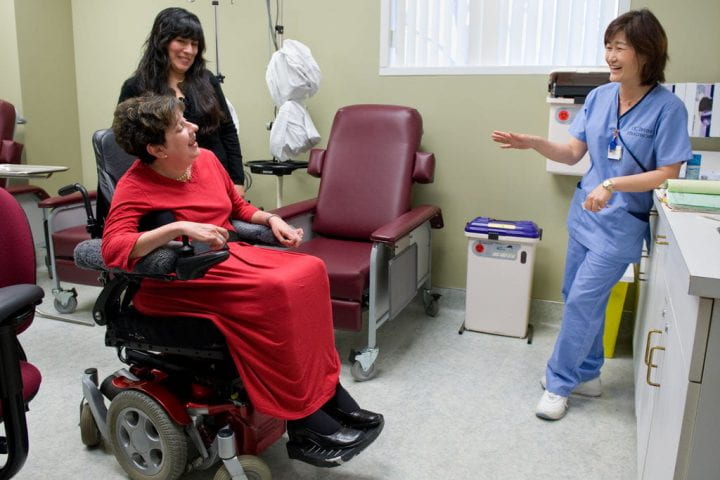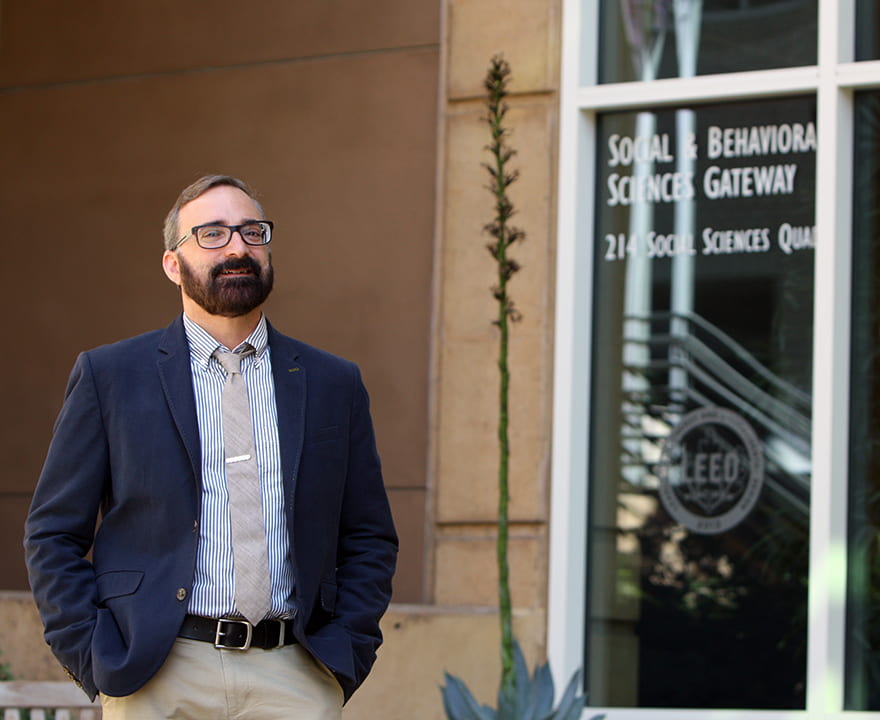Continuing UCI’s legacy of MS research, care
The new Multiple Sclerosis Research Center aims to continue UCI’s legacy of outstanding MS research and care andhas gathered more than two dozen UCI experts to advance novel methods of fighting the chronic neurologic disease.

Tom Lane and Dr. Michael Demetriou have a simple goal for UC Irvine’s new Multiple Sclerosis Research Center: to continue the legacy of excellence established by Dr. Stanley van den Noort.
For more than 50 years, van den Noort was a towering presence in neurology, building at UCI’s Gottschalk Medical Plaza one of the country’s earliest and most successful MS clinics, where his aid and compassion brought tremendous relief to many. He was the first chief medical officer of the National Multiple Sclerosis Society, and his influence on patient care practices is still felt today.
“He was a legend,” says Shirley Cero of Tustin, who was diagnosed with MS by van den Noort in 1992 and still gets weekly treatments at the Gottschalk clinic. “He made me feel that we were in this together, and he went above and beyond for all of his patients.”
Although van den Noort died in 2009, he continues to inspire people like Lane and Demetriou, who have gathered more than two dozen UCI experts to advance novel methods of fighting the chronic neurologic disease.
The MSRC researchers’ work ranges from using stem cells to restore damaged neurons and studying how genetic and environmental factors combine to promote MS to developing compounds from sea anemone extract that can moderate how the immune system responds to the disease.
Lane, a Chancellor’s Fellow and professor of molecular biology & biochemistry, is director of UCI’s new center, built in part with a five-year collaborative MS research center award he received last year from the National Multiple Sclerosis Society to investigate the use of cell replacement therapy to regenerate MS-ravaged nerve tissue. Demetriou, the MSRC’s associate director, trained under van den Noort and also heads the MS clinic.
“UCI has a long and rich history as a center for MS care and research excellence,” says Lane, who has created antibodies that block damaging autoimmune responses to the disease. “By combining our work into this dynamic center, we’ll be able to accelerate the translation of our laboratory discoveries into treatments that can improve quality of life for those with MS.”
Nan Luke, an Irvine attorney who has MS and serves on a patient advocacy committee for the Sue & Bill Gross Stem Cell Research Center, commends the growing ties among UCI’s clinical and research programs and the MS community.
“I’m extremely encouraged as UCI moves ahead with a comprehensive approach to patient care and innovative research,” she says. “These efforts really give patients an extra sense of hope that they can be part of the solution.”

